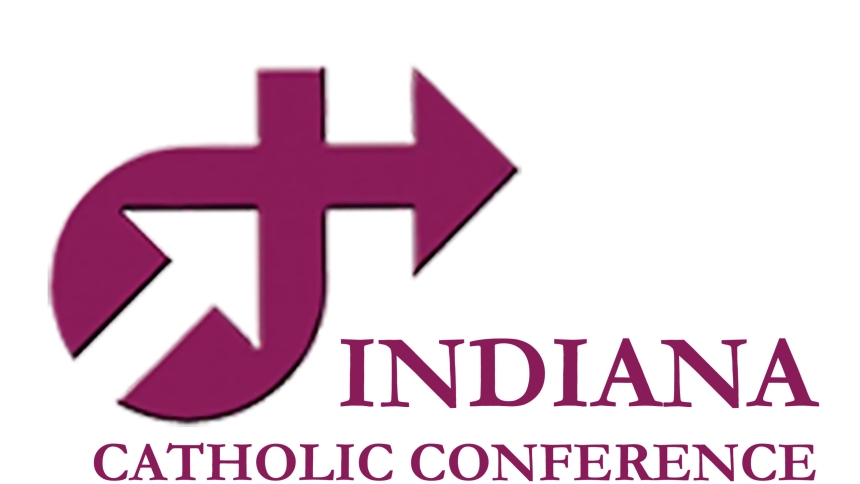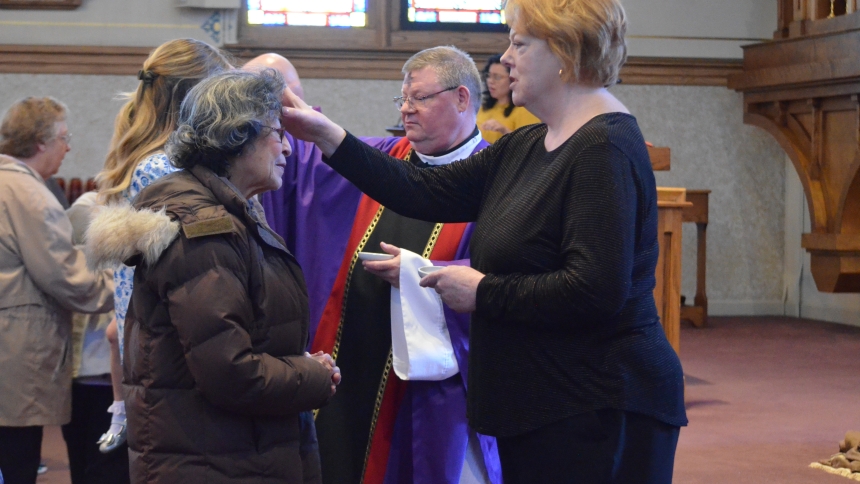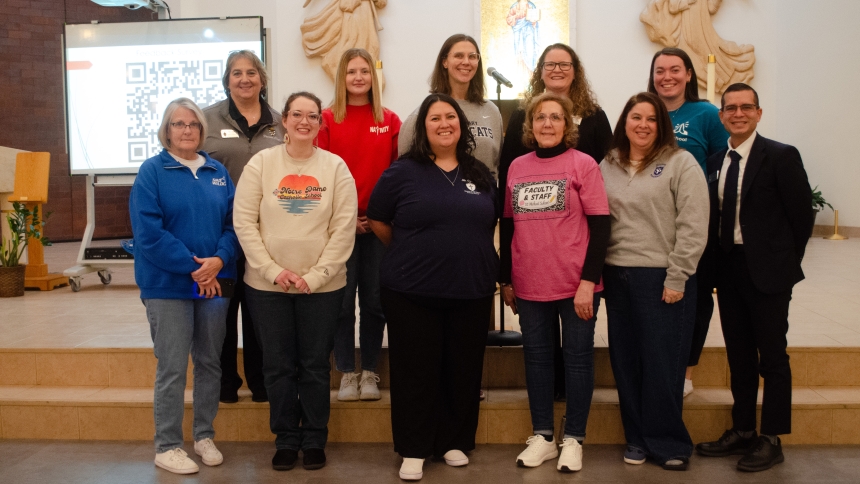MERRILLVILLE - In its simplest form, synod comes from the Greek syn and hodus meaning “together” and “journey.” From the time of the Apostles, through the Church Fathers, and even as a follow up to the Council of Trent, synods have been a regular staple of the Catholic Church. The modern form of synod was introduced by Pope St. Paul VI at the conclusion of Vatican II (Apostolica Solliciudo, 1965). And now, in this month of October 2023, cardinals, bishops, priests, theologians, laity, and a pope are all gathered in Rome to continue this time-honored tradition.
In the Diocese of Gary, synods are also a part of our history. Under the guidance of Bishop Hying, the fourth bishop of Gary, we entered a very special diocesan synod in 2017. It was a process which began at the parish levels, discerning the needs, challenges, and call to mission in our local communities. The process was repeated at the deanery level and finally in a large gathering at Bishop Noll Institute. Here, parish and diocesan leaders discussed the proceedings from all the previous steps and voted on what our priorities as a diocese should be.
Bishop Hying prayerfully received the finding of the synod and wrote his official response in: Go, therefore and make disciples of all nations (dcgary.org). He reminded us of the unique opportunity before us and of our baptismal calling to be missionary disciples. Each parish was then asked to develop its own plan on how to carry out the hope and dreams of our synod.
With Bishop Hying’s departure to Madison, and Bishop McClory’s early ministry being hindered by the pandemic, most post-synod work halted. Then, in Spring of 2021, Pope Francis announced the beginning of the Synod on Synodality. This multi-stage process began at the diocesan level with local synods. Then this work was passed on by bishops to the national level for synthesis, from there to the continental level, and finally to Rome.
Seeing an opportunity to continue the good work of the 2017 synod, Bishop McClory invited parishes to revisit and evaluate their synod goals from 2017 in the light of present circumstances. In the summer and fall pf 2021, this led to diocesan-wide listening sessions. This valuable work was summarized and sent to the USCCB in this document. In February 2022 Bishop McClory released his pastoral response: We Proclaim Jesus as Lord (dcgary.org) to our local synod. He outlined ten principles centered on how we can live out the call of missionary discipleship. A role not for the chosen few, but for all the baptized. This served as a lens through which parishes developed their own, updated synod plans.
Now what does this have to do with Rome? And what is a Synod on Synodality? Our work here in the diocese played a role in what is happening in Rome this month. Pope Francis’ hope was to enter a synod in which all the faithful could be heard. Right now in Rome, the works of thousands and thousands of people are being prayerfully discussed.
While the term “synodality” is new, we see traces of the synodal church all throughout our history (International Theological Commission, Synodality in the Life of the Church, 5). That’s because a synodal church is simply one which listens. According to the working document for the synod, the aim of this synod is to come to a “deeper understanding of the relationship between love and truth” and we are to do this as a Church which “encourages the contribution of all.” (Instrumentum laboris 12, 54). This is a bit of an oversimplification, but reflects what is really at the heart of synodality.
How we live this out, we shall see. To allow for the proper amount of dialogue, Pope Francis has called for this final synodal phase to be in two parts with the conclusion scheduled for October 2024. At the conclusion of the synod, like ours, the findings will be sent to the Holy Father. While there will likely be many headlines coming from these synod discussions, all of the synod’s work is simply advisory to the Holy Father. We will likely not have his pastoral response until perhaps 2025. What a wonderful blessing for us, who have already received the synodal fruits of Bishop McClory’s ten principles of missionary discipleship [dcgary.org/office-bishop/pastoral-letter-missionary-discipleship]. As more information comes from Rome, there will be a dynamic interplay between how we live out the fruits of the 2021-2024 synod as a local church and as the Universal Church. As we continue this Spirit-led path, let us pray for the Church. Pray that we might hear the voice of God ever more clearly as we proclaim Jesus as Lord!



